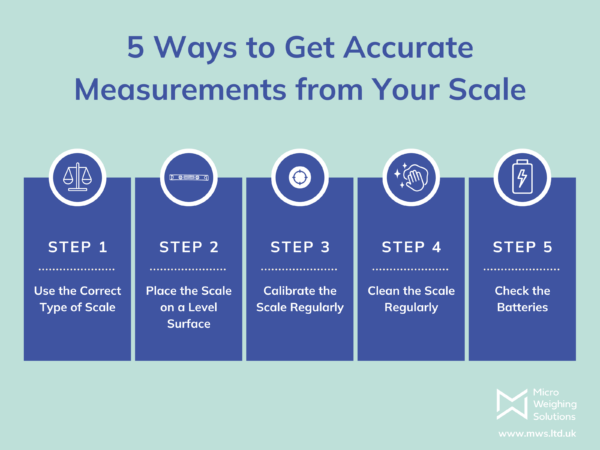5 Ways to Get Accurate Measurements from Your Scale
A scale is an important tool for any business. Whether you are a bakery, chemical lab, restaurant, or manufacturer, a scale is necessary to ensure accurate measurements.
If you are not getting precise readings from your scale, it can cause big problems down the line.
In this blog post, we will discuss five ways to get accurate measurements from your scale.
Follow these tips and you will be able to trust your measurements implicitly!
Why is Accuracy Important?
As a business, ensuring accuracy in your measurements is critical. This is because every decision you make regarding quantities will be based on these readings. If the numbers are off, it could lead to big problems.
For example, if you are baking cakes and your scale is not accurate, you may end up with too much or too little cake batter. This can ruin the cakes and cost you money.
In the manufacturing world, getting accurate measurements is even more critical. This is because most products are made to very specific dimensions. If your scale is not giving accurate readings, it could mean that parts do not fit together correctly or that products are not the right size. This can cause big delays and cost you a lot of money.
Ways to Ensure Accuracy
Now that we have discussed why accuracy is important, let’s talk about how to ensure your scale is giving accurate readings. There are a few things you can do to make sure your scale is working properly. Here are five tips:
1. Use the Correct Type of Scale
There are many different types of scales on the market, so it is important to make sure you are using the correct one for your needs.
If you need to weigh large quantities of ingredients, then a commercial-grade floor scale is likely your best option. However, if you only need to weigh small amounts, a digital scale might be more appropriate.
If the scale is for manufacturing purposes, you will need to make sure it is Class III certified. This type of scale is designed for accurate measurements in an industrial setting.
2. Place the Scale on a Level Surface
It is important to make sure your scale is sitting on a level surface before taking any measurements. If the scale is not level, it can give you inaccurate readings. Use a spirit level or another type of levelling tool to ensure the scale is completely level before taking any measurements.
You can also buy a weighing station that comes with levellers built-in. This is a great option if you frequently have to move your scale around.
3. Calibrate the Scale Regularly
To ensure accurate readings, you should calibrate your scale on a regular basis. Most scales will need to be calibrated at least once a week, but some may need to be calibrated more often. Check the manual for your specific model to find out how often it needs to be calibrated.
Calibrating a scale is relatively simple. You will need to use a standard weight, such as a pound or kilogram weight, to calibrate the scale. Place the weight on the scale and make sure it reads the correct amount. If it does not, you will need to adjust the calibration settings until it does. You can learn more about how to calibrate your scale in this blog post.
4. Clean the Scale Regularly
If your scale is not clean, it can also give you inaccurate readings. Dirt, dust, and other debris can build up on the sensors and affect the readings. Make sure to clean your scale on a regular basis to keep it in good working condition.
You need to be careful not to damage the sensors when cleaning the scale. Use a soft cloth and mild soap to avoid damaging the delicate parts of the scale.
5. Check the Batteries
If your scale is battery-operated, it is important to make sure the batteries are in good working condition. If the batteries are low, it can affect the accuracy of the readings. Always use fresh batteries and check them regularly to ensure they are still working properly.
You can check your handbook or contact us to get more information about the specific battery instructions for your weight.
Following these tips will help you get accurate readings from your scale. If you are still having problems, you can reach out to us for assistance. We are always happy to help!





















